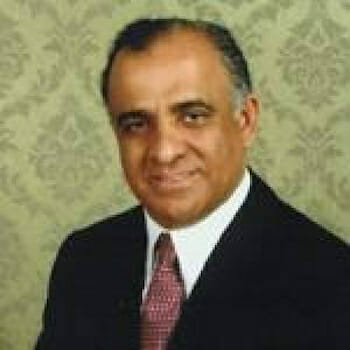
Politics
‘Twas the Night Before Midterms
Though the word ‘balance’ sounds peaceful, anyone who has ever tried to balance anything can tell you the process is anything but. First the scale tips one way, sometimes even wildly, then radically the other way, rebounding back and forth. ‘Balance,’ that tranquil, happy equilibrium, between the two sides only happens eventually, after so many dips back and forth. After shifts and adjustments, after many additions and subtractions.
Societies have always been built around two elements, the conservative and the progressive. The pendulum swinging first one way- towards the progressive end of the social spectrum, then back the other way towards conservatism. This is all perfectly normal.
Indeed, this is what progress in a civilized society almost always looks like.
“The arc of the moral universe is long, but it bends toward justice.” Martin Luther King Jr. said it, Barack Obama quoted it, but it was a little known Unitarian minister, Abolitionist, and American Transcendentalist who may have first expressed the sentiment:
“Look at the facts of the world. You see a continual and progressive triumph of the right. I do not pretend to understand the moral universe, the arc is a long one, my eye reaches but little ways. I cannot calculate the curve and complete the figure by the experience of sight; I can divine it by conscience. But from what I see I am sure it bends towards justice.”
“Things refuse to be mismanaged long. Jefferson trembled when he thought of slavery and remembered that God is just. Ere long all America will tremble,” from 1853 Ten Sermons of Religion by Theodore Parker.
What this means for you on Election Day tomorrow, is that whatever the outcome, there is no need to shout down your neighbor. If your position is right and just, in the end, it will prevail.
Trying to force your opinion on someone else only undermines your position. If your opinion is so great, you shouldn’t need to force it. And trying to shut someone up only proves you don’t like what they’re saying. It doesn’t prove them wrong.
So which way will the pendulum swing tomorrow?
No matter what the polls say, no one really knows.
The glaring error in polling
“If the Presidential election were today, for whom would you vote?”
If 2016 told us anything, it was that polls can’t be trusted. Nevertheless, they are everywhere. What do they say? Depends on who you ask, who paid for the poll and any number of other factors. Polls are unreliable because the media is unreliable, journalists are biased even if they try not to be and predicting the future is notoriously unscientific.
Polls are also not to be trusted because people in 2018 are harder to contact. Fewer people than ever before have a landline and pollsters are still prohibited from using cell phone numbers by the Telephone Consumer Protection Act of 1991, bless it. Because most people don’t even want to be contacted.
Which leads to the biggest problem of all which is systemic to the polling process itself. A question so terrifying to pollsters, no amount of fancy math can compensate for the hole it punches in every poll.
What if only a certain type of person is willing to be polled?
Even the most carefully observed, scientifically conducted political polls are flawed for one key reason: the group of people polled, no matter how large, does not represent a true sample of the voting public.
It is representative of a group of potential voters who are willing to be polled, only. Many people who plan to vote in an upcoming election would not elect to participate in a poll. Not by phone, not on the Internet, and not in person.
The people who do allow themselves to be polled are generally those who feel the most aggrieved. Those on the far left and the far right are more likely than the average voter to participate in a poll. But not too angry, overly incensed voters might not even trust the poll, not trust the pollster and resent being asked intrusive questions in order to attain their market preference in the first place.
Strange bellwethers
Kanye West, Brexit and Tropical Trump
Polls failed to predict President Trump, and polls may not help us now, but there was one sign in particular that caused some people to wonder if the talking heads and pollsters were getting it wrong in predicting a President Hillary Clinton.
Brexit
Brexit was something of a referendum on the European Union and its policies. Did the voters of Great Britan think the changes had been for the better? After the 2008 financial crisis, is it really that hard to understand why many felt the pendulum needed to swing back in a conservative direction?
Most economic experts agree that the European Central Bank failed to respond properly to the crisis. Unemployment rose, tax revenues fell and the recession went much deeper than it had to. Wealthy countries, like the UK, realized that the burden of the bailout, and indeed any future bailouts, would come to rest on them. With little power to avert a crisis akin to 2008 at any time in the future.
Brazil decides
Today, we have the recent election of the so-called “Tropical Trump.” In Brazil, voters have declared their belief that Jair Bolsonaro can help solve the ills that have plagued Brazil in the past years. A right-wing conservative whom many have criticized, especially in the press, Bolsonaro rode a populous wave of sentiment to an election day victory that few felt likely to happen.
Kanye West
Universal condemnation was the general sentiment swirling around Kanye West in 2009 after West interrupted an acceptance speech at the Grammys to tell the world that the Grammys are racist. West was widely condemned, alcohol was blamed, a future Grammy alcohol ban was bandied about. Rehab was mentioned. West apologized.
But, Kayne was right, wasn’t he? Fast forward and everyone knows “The Grammy Awards Are Racist as Hell” the Daily Beast in January 2018; “Grammy’s So White Came to Life. Will the Awards Face Its Race Problem?” New York Times, February 2017.
Early voting in Texas
The last bellwether I mention is early voting results in Texas. In 2014, 1.7 million Texans voted early, in 2018 more than 4.3 million have. With the migrant caravan in the news recently and the economy doing well by almost any metric, who are Texans coming out at double the 2014 rate to support this Election Day?
Who will control the House of Representatives?
Real Clear Politics pinpoints 38 toss-up races that will determine control of the House. The Democrats would need to win 16 out of 37 toss ups to win control of the house. But that means Republicans would have to win 23.
Of the toss-ups there are several seats held by incumbents who have been working really hard representing their districts and are proven campaigners. Congressman Tom MacArthur from New Jersey, for example. Congressman Bruce Poliquin from Maine and Congresswoman Mimi Walters from California also give Republicans reason to hope this election season. Well-run races and solid records never go amiss when every seat counts.
Also on the toss-up list is Kansas’ 2nd district, a district Trump won by 18 points in 2016. Recent polling from Emerson College has first time candidate Steve Watkins up 48–41 against his democratic opponent.
It is solid Republican district. The Trump Republicans in that district are going to elect Steve Watkins.
And with that, only 30+ toss ups to go.
Governors races
Florida, Georgia and Wisconsin are three races to watch tomorrow as results come in.
A referendum on Trump’s policies
Mid-term elections are usually a reflection on the current adminstrantion in Washington. As each individual race throughout the nation is called, as each vote is counted, a picture will start to emerge. What will it show? Depends on who you ask.
If Republicans call tomorrow a win, some liberal Democrats will declare it clear evidence that conservative voters are a bigoted, hateful bunch.
The million dollar question
Whether it’s a #bluewave or a #redstorm, the U.S. House of Representatives is getting a new Speaker of the House tomorrow.
Who will it be?
There is little doubt among prominent Democrats as to who will be the next Speaker if Democrats take the House majority in tomorrow’s election: Nancy Pelosi. There is no one running against her and she has raised vast sums of money for the Democrats.
Even if Republicans hold the House tomorrow, current Speaker of the House Paul Ryan is not seeking re-election. Who will take his place if Republicans win? Shortlist candidates to fill Ryan’s shoes include the favorite, current Majority Leader Kevin McCarthy, as well as Majority Whip Steve Scalise and Freedom Caucus candidate, Jim Jordan.
Good luck tomorrow, candidates.

